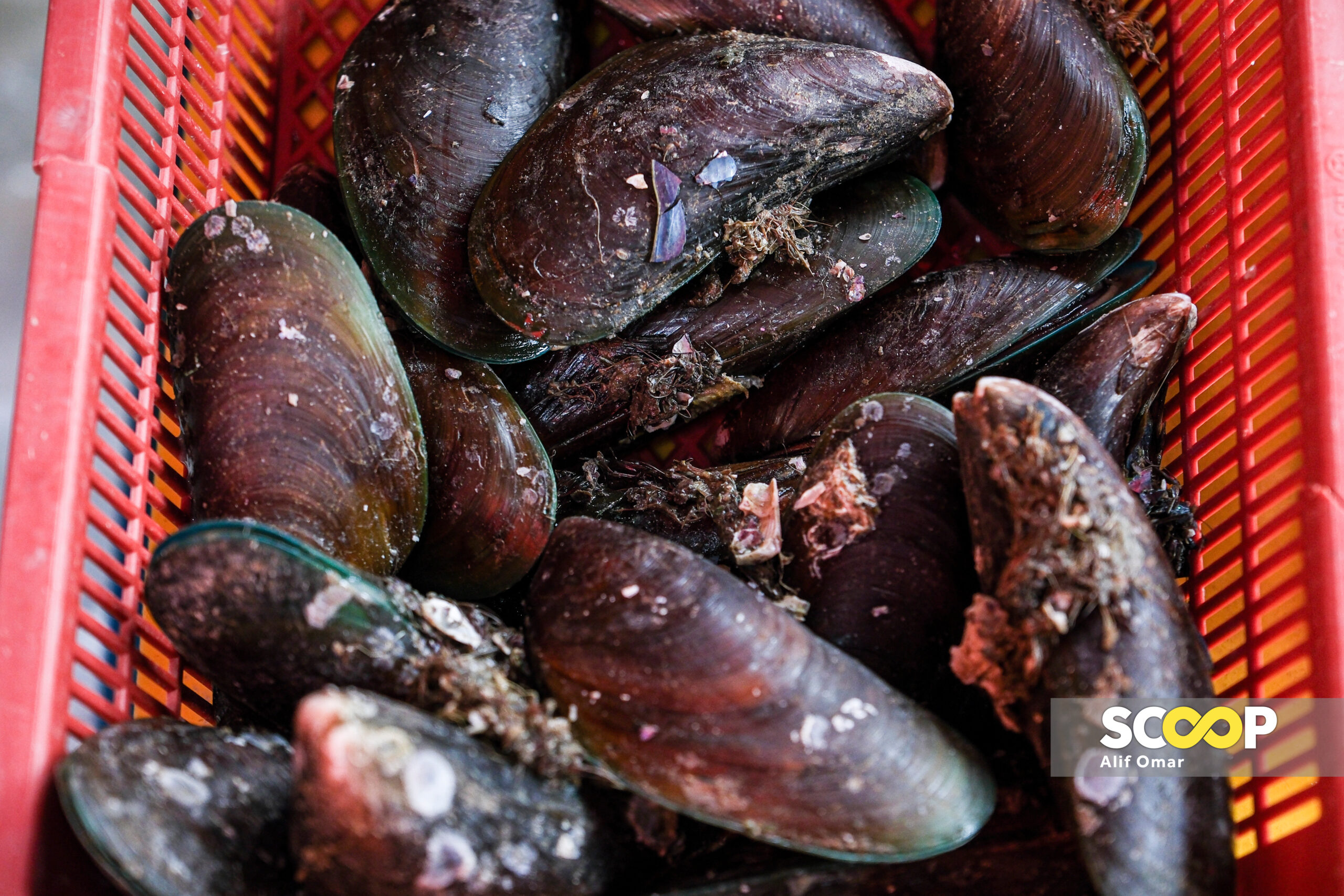PUTRAJAYA – All mussel farmers in Port Dickson, Negri Sembilan, and Melaka are advised against selling their seafood products, as laboratory testing continues to detect biotoxins exceeding safe intake levels.
Fisheries Department director-general Datuk Adnan Hussain said that regular sampling from both areas was conducted weekly to monitor biotoxin levels, whether in the water or the mussels themselves.
“Current analyses by the Kuala Lumpur Fisheries Biosecurity Centre and the Fisheries Research Institute laboratory in Batu Maung, Penang, consistently indicate high biotoxin levels,” he told a press conference after attending the department’s Ramah Mesra Aidilfitri event today.
He said the laboratory tests also found that samples of water and mussels in the areas were contaminated with harmful algae from the Alexandrium species.
He added that according to the Codex Standard of the World Health Organisation, the safe biotoxin level for humans was 800 parts per billion.
On April 2, the Negri Sembilan Health Department reported eight cases of food poisoning linked to mussel consumption. Subsequent laboratory analyses revealed that mussels from both areas were contaminated with biotoxins and harmful algae species such as Prorocentrum, Alexandrium and Pseudonitzschia.
In another development, Adnan cautioned against releasing “ikan bandaraya” or plecos into rivers, as it could disrupt the ecosystem of native fish species.
He said the department recommended two methods for disposing of plecos, namely by burying them in appropriate locations or using them as plant fertiliser or feed for farmed fish.
“The public can contact any nearby Fisheries Department office for assistance with disposing of large quantities of plecos,” he said. – April 30, 2024

